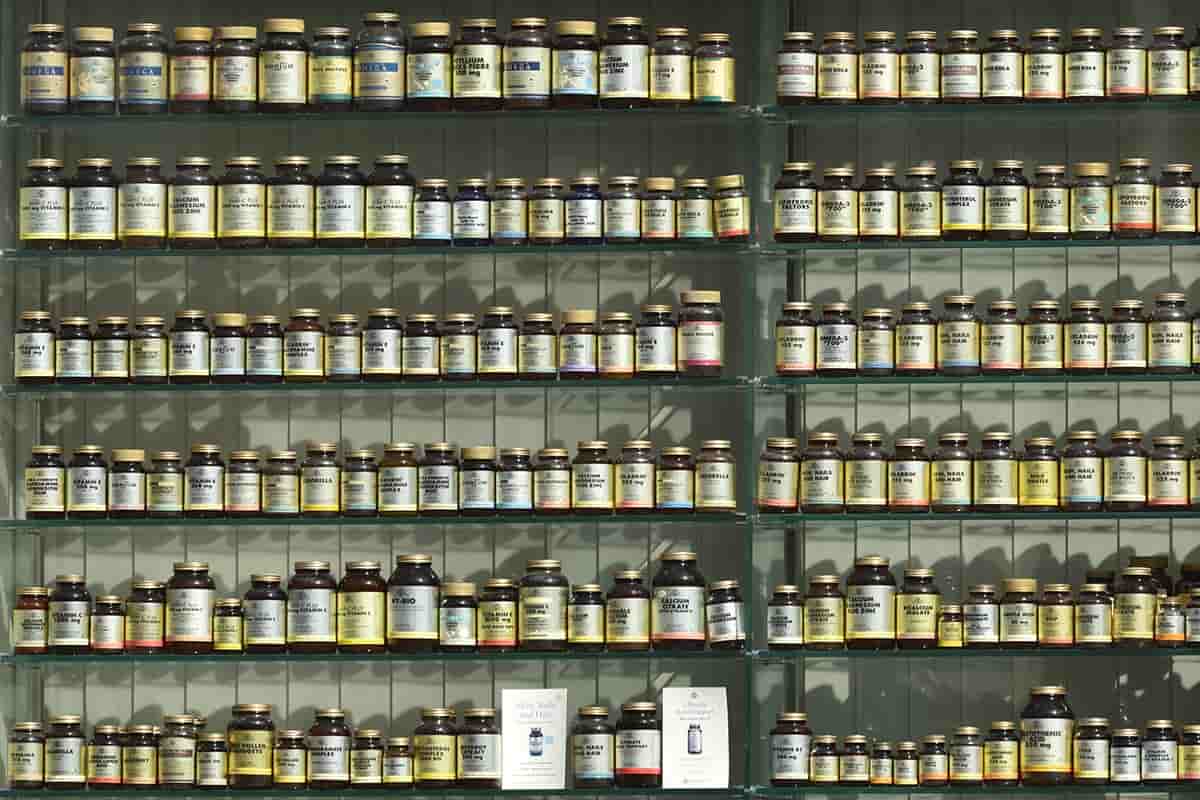6 Tips for Choosing Safer Dietary Supplements

If the size of the supplement aisle in many grocery stories is any indication, people are stocking up on supplements to address everything from gut health to joint pain and hair growth.
While research suggests that certain supplements may help some women alleviate menopause symptoms, the evidence is mixed. Many herbal remedies require further studies to support their efficacy and safety. Furthermore, some herbal products can pose serious health risks when they interact with other medications.
You probably have questions about supplement brands, price points, formulations and safety. While many dietary supplement companies far exceed federal requirements for quality and safety in their products, supplements are much less regulated than prescription medications.
The fact is, not every product is harmless just because it’s on the shelf.
So, how do you protect yourself? Here are six tips for making the best choices when it comes to dietary supplements.
1. Don’t assume that more is always better.
Just as a higher price doesn’t always equal a better product, taking high doses of vitamins and minerals doesn’t always equate to more benefit.
A healthy balanced diet can cover many of your nutritional bases, especially when many foods are fortified with vitamins and minerals already. This means that a daily multivitamin is often overkill for the average person.
That means it’s important to identify specific areas of potential deficits so you can target just these nutrients. You can do this by working with your healthcare team, including a registered dietitian. Blood work can often help evaluate nutritional deficiencies. Certain nutrients like calcium and Vitamin D can be especially important during menopause.
2. Understand how dietary supplements are regulated.
Dietary supplements are regulated differently than pharmaceuticals or foods.
Although manufacturers are required to register their facilities with FDA, they do not have to obtain FDA approval to make or sell products.
That being said, the FDA requires dietary supplement manufacturers to adhere to strict regulations. All dietary supplement manufacturers, distributors, and packagers must follow Good Manufacturing Practices for dietary supplements.
Manufacturers are responsible for ensuring that the claims on their product labels are accurate. They must report any serious adverse events (negative effects on users) found associated with the use of these products in the United States. Adverse events can be reported through the Safety Reporting Portal.
Once a supplement is on the market, the FDA monitors reported adverse events and takes necessary action, such as issuing a warning or requiring a product recall. The FDA also regulates product labels and packaging literature, while the Federal Trade Commission (FTC) regulates product advertising.
3. Understand Good Manufacturing Practices (GMPs).
Companies that manufacture, package, label and distribute dietary supplements must adhere to GMPs, meaning they meet certain industry quality standards.
The FDA itself does not certify dietary supplement products or the facilities in which they are made. There is no official government GMP seal to look for on products that indicate verified company GMP compliance.
4. Be aware of specific product safety concerns, and don’t assume that “natural” means safe.
Though the majority of dietary supplement manufacturers work hard to ensure the quality and safety of their products, consumers need to be aware that adulteration (intentional tampering of a product which may be economically motivated) and contamination (a product contains an unintentional component or substance) of products still pose a risk.
Many ingredients used in the manufacturing of supplements are sourced from countries all over the globe. If these ingredients are not handled and tested properly by the manufacturer, consumers can unknowingly ingest supplements contaminated with unsafe levels of substances like lead, arsenic, mercury, pesticides, microbiological contaminants, bacteria, fungi, and mold, among other harmful residues.
The FDA Consumer Updates page is a good resource for current news on supplement safety.
5. Read the label.
The FDA requires all dietary supplements to have a Supplement Facts panel which includes the name of the product, how much is in the package, who manufactured/packaged/distributed the product, its ingredients, and the nutritional constituents.
Manufacturers may also list “proprietary blend” on their label. This indicates a mixture of ingredients of which it is impossible to know the exact contents.
6. Look for third-party testing marks.
The most important lesson is that while dietary supplements are regulated, there is no FDA seal of approval to show that the products have been verified as safe. The best way to choose a safer supplement is to look for one that has been tested for quality and safety by a third-party certifying body.
According to the United States Anti-Doping Agency (USADA), a dietary supplement third-party testing agency should:
- Be free from conflicts of interest.
- Have external accreditation such as ISO Guide 65- General Requirements for Bodies Operating Product Certification Systems or equivalent, and ISO17025 – General Requirements for the Competence of Testing and Calibration Laboratories.
- Conduct an audit of the supplement company to Good Manufacturing Practice (CFR 111). The third-party testing company (or another vendor if this step is outsourced) should offer proof of qualifications to conduct the audit.
- Evaluate the dietary supplement for overall safety and quality (preferably according to NSF/ANSI 173 Dietary Supplements).
- Have validated and accredited methods to test for prohibited substances in sports.
Some of the most well-known and trusted third-party marks for dietary supplements include:
Sign up for more unique women’s health content
By submitting this form, you agree to the Lisa Health Privacy Policy and Terms of Use


